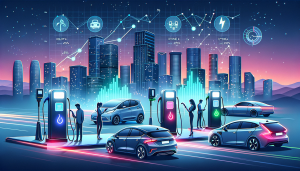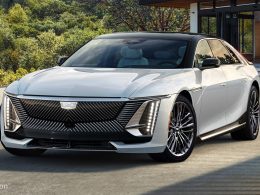In recent years, the automotive industry has experienced a revolutionary transformation, primarily due to advancements in Artificial Intelligence (AI) and Machine Learning (ML). These technologies have not only reshaped the way vehicles are manufactured but have also significantly impacted their functionality, safety, and overall efficiency.
Autonomous Driving
One of the most significant impacts of AI and ML in automotive technology is the development of autonomous vehicles. These vehicles rely on complex algorithms and sensors that enable them to perceive their environment and make real-time decisions without human intervention. ML algorithms process data from various sensors like cameras, lidar, and radar to recognize objects, pedestrians, and road signs, enabling the vehicle to navigate safely.
Enhanced Safety Features
AI-powered safety features have substantially reduced the number of accidents on roads. Systems like adaptive cruise control, lane departure warning, and automatic emergency braking use AI algorithms to analyze data and assist drivers in avoiding collisions. Moreover, AI continuously learns from driving patterns and situations, improving the accuracy of these safety features over time.
Predictive Maintenance
AI and ML play a pivotal role in predictive maintenance, enabling vehicles to identify potential issues before they occur. By analyzing data from sensors and historical maintenance records, AI predicts when components might fail, allowing for proactive maintenance, reducing downtime and increasing vehicle reliability.
Personalized Driving Experience
The integration of AI in vehicles allows for personalized driving experiences. AI systems learn from a driver’s behavior, preferences, and patterns to adjust various settings like seat position, climate control, and entertainment options. This level of personalization enhances comfort and convenience for drivers and passengers alike.

Smart Traffic Management
AI facilitates smart traffic management systems that optimize traffic flow, reduce congestion, and enhance overall transportation efficiency. By analyzing vast amounts of data, including traffic patterns, weather conditions, and road incidents, AI can suggest alternative routes in real time, minimizing travel time and fuel consumption.
Production Optimization
AI and ML have revolutionized the manufacturing process of vehicles. Manufacturers utilize predictive analytics to forecast demand, optimize inventory, and streamline production schedules. Additionally, AI-powered robots assist in assembly lines, enhancing precision and efficiency in manufacturing operations.

Challenges and Future Prospects
While AI and ML have brought about remarkable advancements, challenges persist. Safety concerns regarding autonomous vehicles, ethical dilemmas, and data security are areas that require continuous attention and development. Furthermore, the integration of AI in vehicles demands robust infrastructure and regulations to ensure safe and ethical usage. Looking ahead, the future of automotive technology seems promising. Advancements in AI and ML will continue to refine autonomous driving capabilities, making them safer and more reliable. Moreover, the integration of AI into vehicle-to-everything (V2X) communication systems will further enhance road safety and efficiency.
Conclusion
The impact of AI and ML in automotive technology cannot be overstated. From revolutionizing safety features and enabling autonomous driving to optimizing production processes and personalized driving experiences, these technologies continue to reshape the automotive landscape. As advancements progress, collaboration between industry stakeholders, policymakers, and technology innovators will be crucial in harnessing the full potential of AI and ML while addressing associated challenges.












